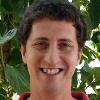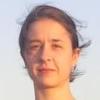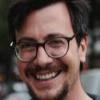History and Philosophy of Contemporary Theoretical Physics
The scientific understanding of the physical world and the methods of physics have both undergone dramatic changes during the 20th century. The aim of this working group is to foster a network of scholars working on the history and philosophy of modern physics and to discuss both historical papers and recent/ongoing works of its members. The group focuses on the mathematization of fundamental theoretical physics, its historical development and philosophical implications. The scope of the group therefore includes primary resources associated with the development of general relativity, quantum theory and quantum field theories, together with alternative theories (such as modified theories of gravity) and rejected theories (such as unified field theory). The starting point for the group is the historical development of gauge theories, together with related concepts and theoretical practices (e.g. spinors, dimensional reduction). Just a few examples of issues that fall within the scope of the working group are the historical development of quantum gravity, varieties of realism vs. anti-realism in the context of fundamental physics, the roles of principles in theorizing, and the limits of mathematical reasoning.
Please set your timezone at https://www.chstm.org/user
Respectful Behavior Policy
Participants at Consortium activities will treat each other with respect and consideration to create a collegial, inclusive, and professional environment that is free from any form of discrimination, harassment, or retaliation.
Participants will avoid any inappropriate actions or statements based on individual characteristics such as age, race, religion, ethnicity, sexual orientation, gender identity, gender expression, marital status, nationality, political affiliation, ability status, educational background, or any other characteristic protected by law. Disruptive or harassing behavior of any kind will not be tolerated. Harassment includes but is not limited to inappropriate or intimidating behavior and language, unwelcome jokes or comments, unwanted touching or attention, offensive images, photography without permission, and stalking.
Participants may send reports or concerns about violations of this policy to conduct@chstm.org.
Upcoming Meetings
-
Wednesday, December 11, 2024 9:30 am to 11:00 am EST
Donald Salisbury, Kurt Sundermeyer - "Léon Rosenfeld’s general theory of constrained Hamiltonian dynamics“
Guest Experts: Donald Salisbury, Kurt Sundermeyer
-
Wednesday, January 8, 2025 9:30 am to 11:00 am EST
Sebastian De Haro - "Noether’s Theorems and Energy in General Relativity"
Felix Klein - "Zu Hilberts erster Note über die Grundlagen der Physik"
Guest Expert: Sebastian De Haro
-
Wednesday, February 12, 2025 9:30 am to 11:00 pm EST
TBA
-
Wednesday, March 12, 2025 9:30 am to 11:00 am EDT
TBA
-
Wednesday, April 9, 2025 9:30 am to 11:00 am EDT
TBA
-
Wednesday, May 14, 2025 9:30 am to 11:00 am EDT
TBA
-
Wednesday, June 11, 2025 9:30 am to 11:00 am EDT
TBA
Past Meetings
-
November 13, 2024
Michel Janssen - "Drawing the line between kinematics and dynamics in special relativity"
Guest Expert: Michel Janssen
-
October 9, 2024
Giora Hon and Bernard Goldstein (2022): Interpretation in Electrodynamics, Atomic Theory, and Quantum Mechanics
J.C. Maxwell (1873): Faraday
E. Schrödinger (1926). On the relation between the quantum mechanics of Heisenberg, Born, and Jordan, and that of Schrödinger.
Guest expert : Giora Hon
-
June 12, 2024
Fraser and Koberinski (2016), "The Higgs mechanism and superconductivity: A case study of formal analogies" and Anderson (1963) "Plasmons, Gauge Invariance, and Mass"
Guests: Doreen Fraser and Adam Koberinski
-
May 8, 2024
Postponed
Erik Curiel on Howard Stein's "On the Notion of Field in Newton, Maxwell and Beyond"
and Maxwell's "Faraday's Lines" and "A Dynamical Theory of the Electromagnetic Field"
Instructions:
Stein paper:
1. Beginning up to Part II section 3 (pp. 264-282)
2. Part III (pp. 285-287)
Maxwell "Faraday's Lines":
1. Introduction up to section "Theory of Dielectrics" (pp. 155-177 in Maxwell's *Scientific Papers*)
2. Part II, pp. 188-195 (up to paragraph starting "Before entering...")
3. Part II, pp. 202 (paragraph starting "If a_1 b_1 c_1 represent the components...") to 209 (up to section "Examples")Maxwell's "A Dynamical Theory of the Electromagnetic Field":
1. All of Part I (paragraphs 1-20)
2. Part II, paragraphs 47-52
3. All of Part III (paragraphs 53-75)
Strongly suggested: Stein, "Subtler forms of matter"Other suggested readings:
1. Maxwell's "On Action at a Distance"
2. Stein's "How does physics bear upon metaphysics; and why did Plato hold that philosophy cannot be written down?"
-
April 10, 2024
Ben-Menahem (2001): Poincaré and some of his critics, and Henri Poincaré: Science and Hypothsis (1905, chp. 3 + a bit from chp. 4).
Guest: Yemima Ben-Menahem
-
March 13, 2024
Heilbron, Rovelli - "Matrix Mechanics Mis-Prized: Max Born's Belated Nobelization"
Guest: Carlo Rovelli
-
February 14, 2024
Falconer - „Vortices and atoms in the Maxwellian era“
Primary source: Section 'On the Theory of Vortex Atoms' from Maxwell's 1875 Encylopaedia Britannica article, 'Atom':
https://archive.org/details/scientificpapers02maxwuoft/page/466/mode/2up...
Guest: Isobel Falconer
-
January 10, 2024
Marco Giovanelli, (2022) `Motivational Kantianism: Cassirer's late shift towards a regulative conception of the a priori' and Ernst cassirer (1936/1956) `Determinism and indeterminism in modern physics', chp 5: Statement of Principles.
Guest: Marco Giovanelli
-
December 13, 2023
Heisenberg - "Quantum-theoretical re-interpretations of kinematic and mechanical relations" (Z. Phys, 1925);
Blum, Jähnert, Lehner, Renn - "Translation as heuristics: Heisenberg's turn to matrix mechanics" (Studies, 2017);
Guest: Alexander Blum
-
November 8, 2023
Ernst Mach, The Science of Mechanics (Appendix XX); Karim Thébault, On Mach on Time (2021)
Guest: Karim Thébault
Group Conveners
-

Guy Hetzroni
Guy Hetzroni is a member of the Department of Natural Sciences at the Open University of Israel and of the university’s Astrophysics Research Center (ARCO). He received his Ph.D. from the Program in the History and Philosophy of Science at the Hebrew University of Jerusalem in 2019, and conducted postdoctoral research as a Rothschild Fellow, visiting research fellow at the Freudenthal Institute at Utrecht University and an associate member of the Faculty of Philosophy at the University of Oxford. His research is in the philosophy of physics, focusing on epistemological and ontological questions in the context of the methods of modern physics. His current main research project conerns symmetry arguments in the context of quantum physics and gravitational theories.
-

Bernadette Lessel
Bernadette Lessel is a postdoctoral researcher at the Max Planck Institute for the History of Science, interested in historical epistemology of final theories, most specifically in an historical understanding of the development of fundamental physical theories into highly abstract, non-empirical formalisms. Her current research project analyses Wolfgang Pauli's engagement with unified field theory and how it influenced the early development of quantum gravity. Prior to being a postdoc in the history of science, Bernadette received a Ph.D. in mathematics from the Georg-August-Universtiät Göttingen and studied physics and mathematics at the Philpps-Universität Marburg. Bernadette also held a visiting research fellowship at the Perimeter Institute in Waterloo, CA, and a teaching fellowship at the Cohn Institute for the History and Philosophy of Science and Ideas (University of Tel Aviv).
-

Noah Stemeroff
Noah Stemeroff is an Alexander von Humboldt Postdoctoral Fellow at the University of Bonn and the Max Planck Institute for the History of Science. He received his Ph.D. in the History and Philosophy of Science and Technology from the University of Toronto in 2019. His research sits at the intersection of the history and philosophy of mathematics and science, and the history of philosophy. As a Humboldt fellow, he has been engaged in a study of the "mathematization of nature" implicit in the work of Hermann Weyl and Wolfgang Pauli, and their relation to the broader empiricist, idealist, and neo-Kantian traditions in twentieth century philosophy of science. This study will form part of a broader investigation into the manner in which mathematics and physics have been interwoven in the development of the gauge theories of modern theoretical physics.